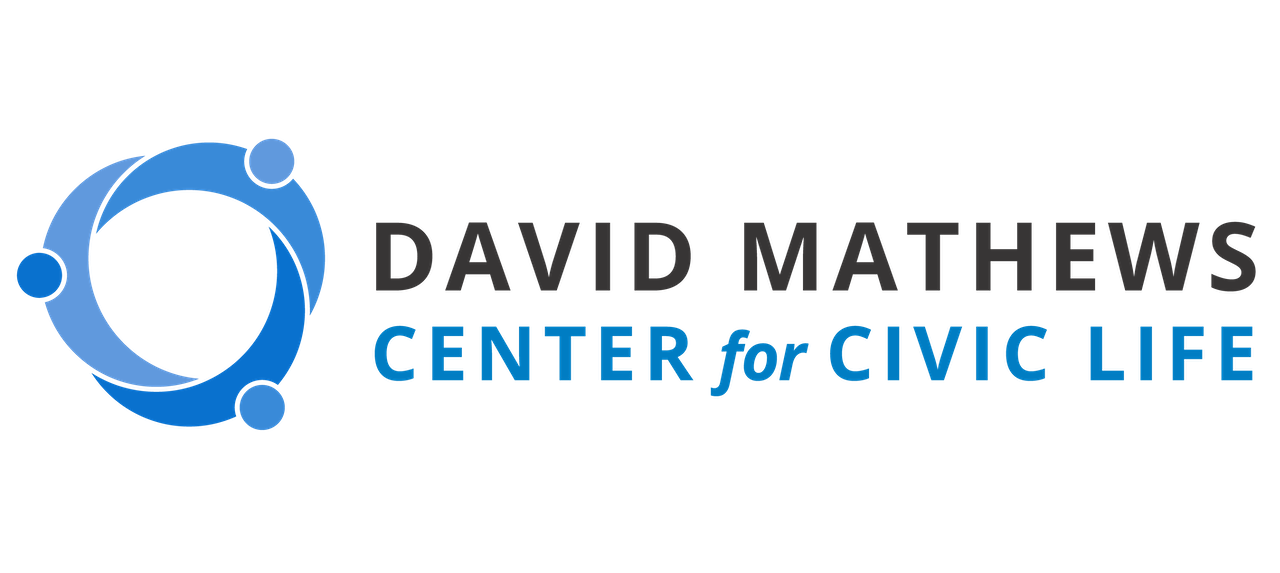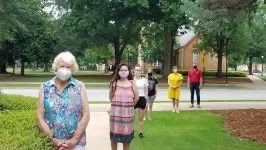Civic Dispatch: Walker County organizations forge ahead with opioid crisis programming
Jean O’Connor-Snyder intern Laynie Snyder emphasizes the work being done by Walker County organizations to address the opioid crisis and how they have adapted during the pandemic.
I know that it would be very difficult for most of us to find one area of our lives that COVID has not dramatically changed. Generally, I think it is fair to say that many people are doing the most they can do to address the challenges that COVID has caused. Originally that meant finishing the school year out online, restaurants serving food only via delivery or take-out, and working from home if possible – even as a civic engagement intern.
However, it's pretty easy to see that the introduction of COVID has also exacerbated some pre-existing issues in communities, and just because we are in the midst of a pandemic doesn't mean that we can overlook or stop working on these other issues. Walker County, AL, has been in the midst of an opioid epidemic for over a decade, and COVID has absolutely had an impact on the county's continued response.
Leading the response is the Health Action Partnership (HAP) of Walker County, a consortium of organizations dedicated to make Walker County a happier, healthier place to live. When the Health Action Partnership received grant funding from the Health Resources and Service Administration (HRSA) to address Walker's opioid crisis, they created the Behavioral Health Priority Group (BHPG), which came up with a 5-part, multi-year plan to address the issue.
Briefly, the plan consists of (1) community education on risks, harms, and responses; (2) prevention and intervention by health professionals; (3) ensuring access to equitable and timely treatment options; (4) establishing and enhancing community-led lifelong recovery support; and (5) promote healthy lives for those affected by addiction. The BHPG has been working to get a model for assessing and referring clients to treatment and other recovery resources in Walker County as a part of the second objective of engaging health professionals and organizations in the intervention of substance use disorders.
Enter the Recovery Resource Center (RRC). At least, that was the plan before COVID. The RRC, which is currently only based in Jefferson County, is an organization that people currently in recovery and those who are seeking to recover from substance use disorders can go to find information and resources. The RRC employs peer support specialists, licensed professional counselors, and social workers; and provides services like assessments, referrals to treatment centers and support groups, and helps connect clients with education or job opportunities, all for free.
Leslie Plaia, the Director of RRC, and Rachel Puckett of HAP, had been working on plans to expand the RRC into Walker County for a few months before COVID struck. Plaia said that COVID was the biggest impediment to expanding the RRC into Walker because it “completely stopped the project.” She pointed out that expanding into Walker County during COVID wouldn’t be feasible because of the health safety risks both to the staff and the prospective clients.
COVID had such an impact on the RRC, like so many other organizations, that Plaia and her staff have been working remotely since mid-March and the week of June 29 was the first week that Plaia had allowed her staff to schedule times to go into the office at all. The expansion of the RRC into Walker County is something that will have to wait at least until the Birmingham office is functioning again, and as of my conversation with Plaia on June 29th, there are no official plans of return.
Fortunately, before COVID struck, Plaia had applied for funding to establish availability for telehealth assessments to Walker County residents. These assessments are particularly important for two reasons: first, these assessments are requisites to admittance to state-certified treatment programs; and second, these assessments are the service gap that the RRC would be filling in Walker. That means that even though the client receiving the assessment is in Walker County, they would still be able to be assessed, albeit by someone in Birmingham.
Many residents of Walker County who are assessed get sent to treatment programs in Jefferson County, and another of the services that the RRC would provide would be to transport the client to the treatment program. These telehealth assessments provide a solid foot in the door for when the RRC can fully expand into Walker. In addition to providing these assessment services, the RRC would enhance and support the existing resources in Walker County with referrals and collaborations. Also before COVID, the Department of Mental Health contracted the RRC to provide assessments and peer support in Walker County’s criminal justice system, so that is also helpful groundwork to have when the expansion of a fully-functioning RRC resumes.
Once the expansion plans can continue, Plaia expects to be able to have the RRC up and running in no more than a couple of months. She and Puckett have received plenty of positive feedback and verbal support from residents of Walker County and the Walker Area Community Foundation. Walker Area Community Foundation is an anchor organization in the Behavioral Health Priority Group, as well as Capstone Rural Health Center, where Puckett serves as Behavioral Health Development Manager, and United Way of Central Alabama.
Walker Area Community Foundation is a major grantmaker for Walker County nonprofits and organizations and is focused on the advancement of all Walker County. In addition to the support coming out of Walker County, Plaia has also had many of her own staff express willingness and desire to be moved to the Walker County branch. With the amount of support and need for the Recovery Resource Center in Walker County, it’s resumed expansion is one more thing we can look forward to once the pandemic is over.
Laynie Snyder is a University of Alabama New College JOIP intern who remotely served the Walker County community this summer.


